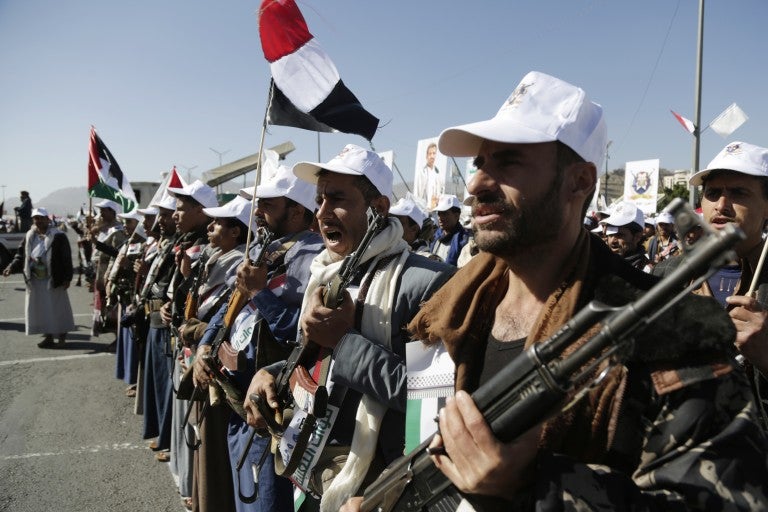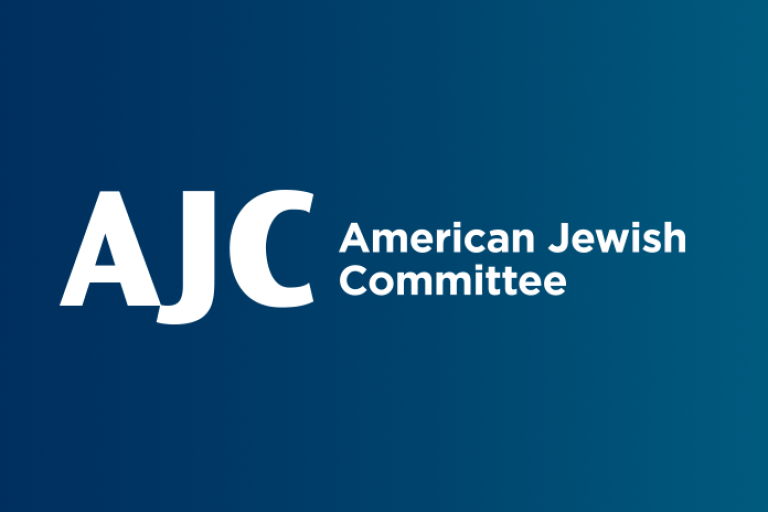April 11, 2025 — New York
American Jewish Committee (AJC) is monitoring the planned negotiations between Iran and the United States related to the Iranian regime's rapidly advancing nuclear program. Action toward a solution is necessary and overdue. The Iranian regime has long been a destabilizing force on the world stage. It has continuously called for the destruction of the U.S. and Israel, supported terrorism, interfered in the internal affairs of other nations, and committed pervasive human rights abuses. Its ongoing, active threats to regional stability and peace are intolerable.
Most alarming is Iran’s rapidly advancing nuclear weapons program. The regime has increased uranium enrichment and other nuclear-related activities in violation of the limits set by the Joint Comprehensive Plan of Action (JCPOA). Since April 2021, it has enriched its uranium stockpiles to 60 percent, just below weapons grade, while simultaneously preventing IAEA inspectors from visiting its nuclear facilities, in violation of its international obligations. The IAEA estimates that the regime’s stockpile of enriched uranium is now nearly 30 times larger than the agreed limit in the JCPOA. According to experts, Iran is in a position to produce enough material to fuel several atomic bombs.
The Iranian regime is not only on the brink of nuclear weapons capability but is also developing the means to deliver them. The regime has the most extensive inventory of ballistic missiles in the region, and its work on space launch vehicles would allow it to produce intercontinental ballistic missiles. A nuclear-tipped Iranian missile could soon threaten the Middle East, Europe, and the U.S.
When the JCPOA between Iran and the P5+1 was reached in 2015, AJC opposed the deal for several key reasons: (a) it failed to address the regime’s ballistic missile development, which continues aggressively and menacingly; (b) the sunset provisions in the JCPOA provided a pathway to a nuclear bomb no later than 2030, if not sooner; (c) weaknesses in the inspection regime left Iranian military sites off-limits; and (d) the deal didn’t address the regime’s regional ambitions and support for terror, violence, and repression. The regime’s behavior since the deal’s conclusion, including providing the financial, political, and military support necessary for Hamas to carry out the October 7, 2023, massacre and its launch of hundreds of missiles at Israel, has only reinforced our concerns.
Any new agreement with Iran should address these fundamental flaws. In February, AJC welcomed the administration’s announcement of a maximum pressure campaign on the Iranian regime. We support the administration’s stated objective of “fully dismantling” Iran’s nuclear weapons program and urge the administration to maintain heavy sanctions pressure to achieve that outcome as well as cutting off support for the regime’s network of proxy forces that have wreaked havoc in Lebanon, Yemen, Iraq, Syria, Gaza, and the West Bank. AJC has long maintained that any diplomatic process with the Iranian regime must be conducted in coordination with Iran’s regional neighbors, including Israel, which are most directly affected by the regime’s aggressive policies, terror proxies, and nuclear ambitions.
Human rights violations in Iran —– including persecution of the Baha'i community and other religious and ethnic minorities, brutal suppression of protests, arbitrary arrest and torture of dissenters, restrictions on women's rights and detention of women's rights defenders, and execution of minors —– remain extensive and ongoing and must be addressed.
Further, talks should not deter the U.S. from coordinating with its European allies to trigger the snapback sanctions mechanism against Iran before it expires on October 18, 2025. That date is especially significant, as it coincides with Russia assuming the rotating presidency of the U.N. Security Council (UNSC) — a position it could use to stall or block any action. With France holding the UNSC presidency, there is an opportunity to leverage all 15 UNSC members, including Russia, to reimpose sanctions that were lifted under the 2015 nuclear deal — a critical action that can, along with U.S. pressure, further force Iran to the negotiating table.
AJC is the global advocacy organization for the Jewish people. With headquarters in New York City, 25 offices across the United States, and 15 overseas posts, as well as partnerships with 38 Jewish community organizations worldwide, AJC's mission is to enhance the well-being of the Jewish people and Israel, and to advance human rights and democratic values in the United States and around the world. For more, please visit www.ajc.org.


